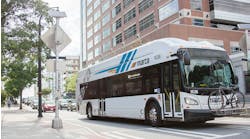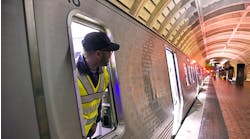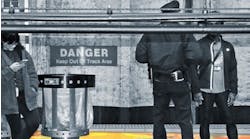A proposal to end Port Authority's transit monopoly in Allegheny County advanced through the state House on Tuesday, a change supporters say could improve service and reduce costs for taxpayers.
Detractors, however, say the plan could harm communities needing transit the most and revert to a time when the area was home to dozens of transit companies, many of which struggled financially, routinely increased fares and left large gaps in service.
The bill will move to the Senate. A spokesman for Senate Republicans, who outnumber Democrats 30-20 in the chamber, said he had not yet reviewed the legislation.
"It would set Allegheny County back more than 50 years," said Amalgamated Transit Union Local 85 President Patrick McMahon, who represents 2,500 authority employees and 3,300 retirees.
The 1956 law that created Port Authority gave it exclusive rights to provide transit service in the county and required other operators to seek permission from the authority to do so.
Authority records show eight companies that sought permission to provide service within the county since 2006 received approvals, though all but one -- Ohio Township-based Lenzner Coach Lines -- wanted to provide shuttle or door-to-door services, not commuter service resembling that offered by Port Authority.
Lenzner began daily service from Marshall and Franklin Park to Downtown to fill a void when Port Authority cut service by 15 percent in March. After a sluggish start, company President Charles Lenzner said ridership increased about 10 percent over the past month -- since it started offering more flexible ticket packages instead of just monthly passes, including tickets for single one-way and round trips.
"We broke the barrier here, and we're not going to give up. We think this service is going to grow," Lenzner said. He said the company inquired a month ago about expanding to serve 15 to 20 "reverse commuters" who live in Pittsburgh and work in the suburbs, but hasn't received the OK. Lenzner's permit allows it to transport passengers from the North Hills into the city in the mornings and from the city to the suburbs in the evenings.
The anti-monopoly bill, introduced by Republican Reps. Mike Turzai of Bradford Woods and Mark Mustio of Moon, passed the House by a 116-81 vote. It would give the state Public Utilities Commission regulatory power over transit in Allegheny County, as it has elsewhere.
"The Port Authority will continue to exist," Turzai said. "We think competition will let them get better by forcing them to be more efficient. Port Authority could take its revenues and focus them on areas where transportation needs are significant, so they don't have to use (limited revenues) where private transportation can do the job. In the end, we think it could reduce costs to taxpayers."
Mustio said the plan would allow private companies and transit agencies from neighboring counties to "fill the void that has occurred due to Port Authority's route cuts." In March, the agency eliminated 29 of its 129 routes and scaled back 37 others.
Rep. Joe Markosek, D-Monroeville, the House Appropriations minority chairman and a former transportation committee leader, expressed concern.
"Although Port Authority has had some self-inflicted problems in the recent past, that doesn't mean fair transit doesn't need to be subsidized," Markosek said. "Many routes that are depended on the most are not the most profitable routes, and if we start putting more faith in private transportation services, the first routes to disappear will be those that aren't profitable. That's how the free market works."
Markosek said he worries that if a private system edges Port Authority out of the market, "routes through poor neighborhoods will cease to run."
Said Port Authority spokesman Jim Ritchie: "This is a situation we're neutral on. It doesn't hurt us or help us. Public transportation -- what we provide -- is a public service, and we're more concerned about receiving a sustainable, long-term source of funding that addresses our cost issues."
Copyright 2008 LexisNexis, a division of Reed Elsevier Inc. All rights reserved.
Terms and Conditions | Privacy Policy


